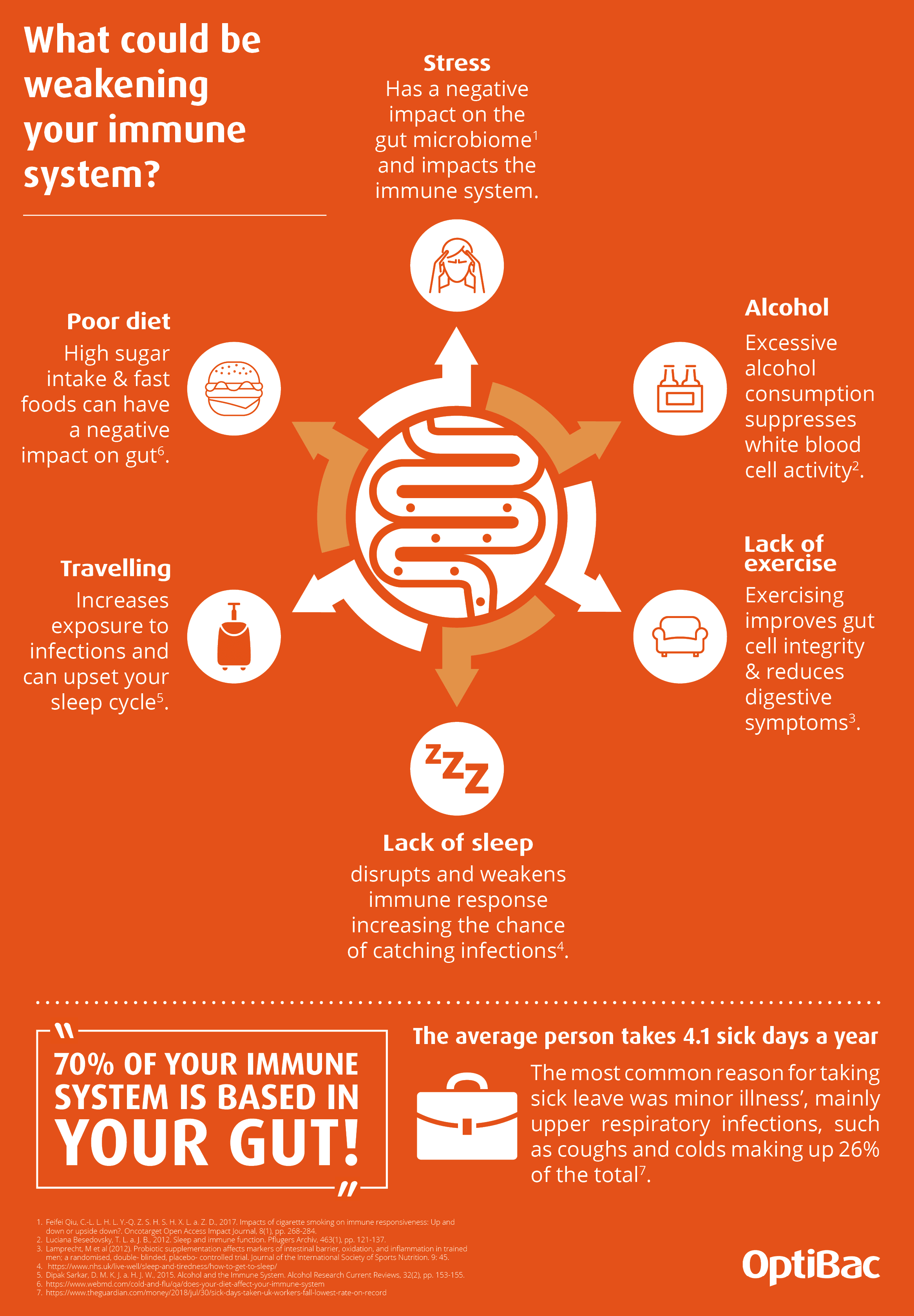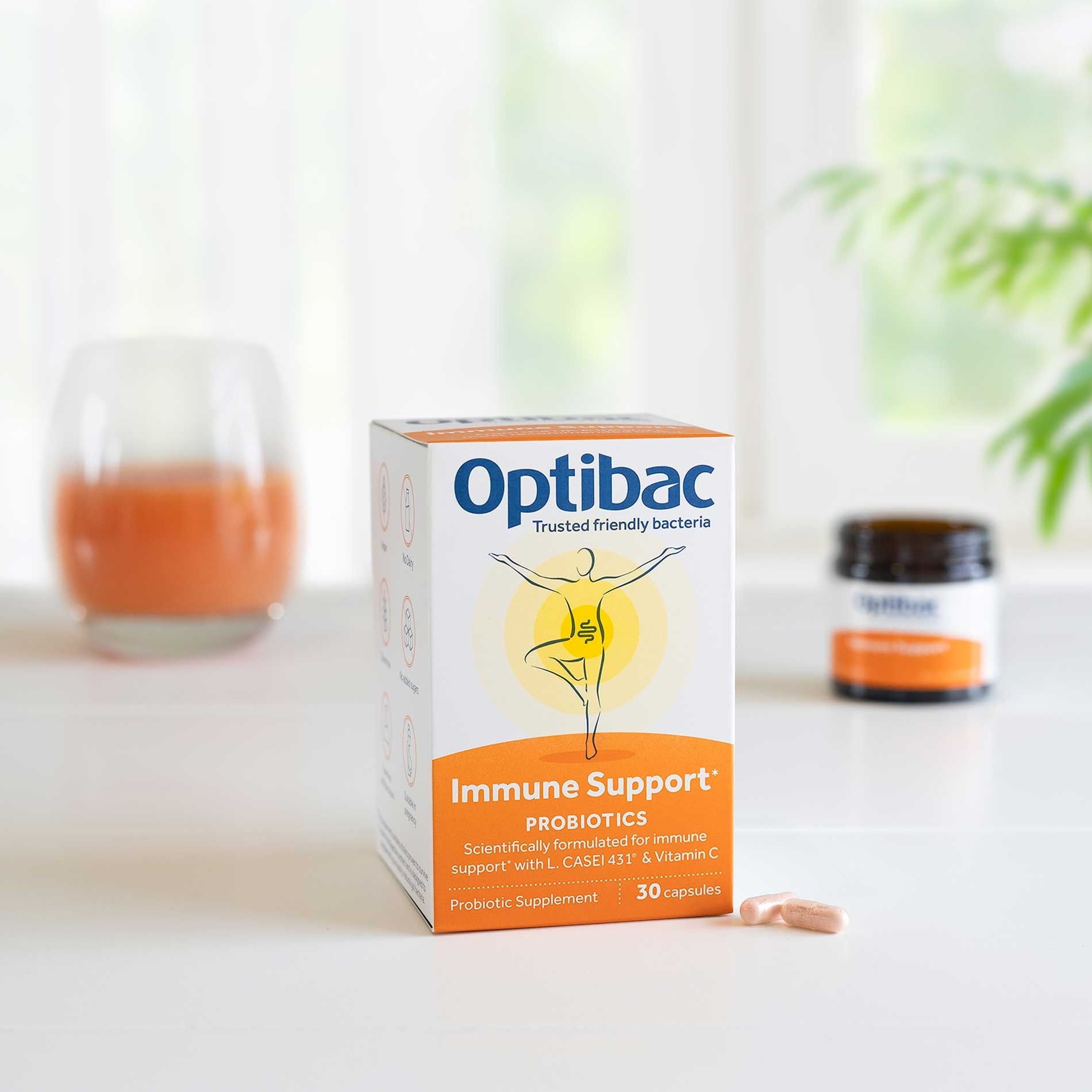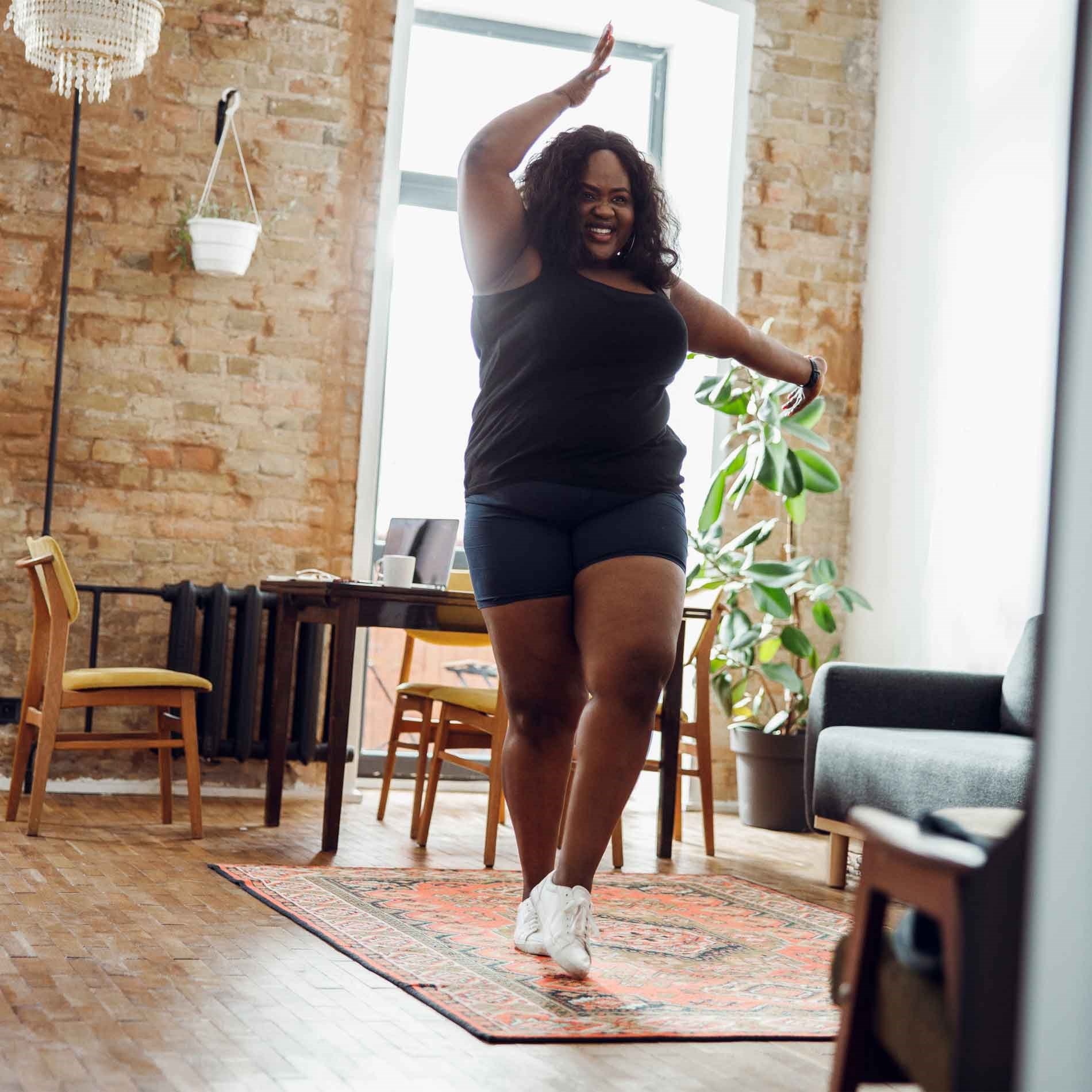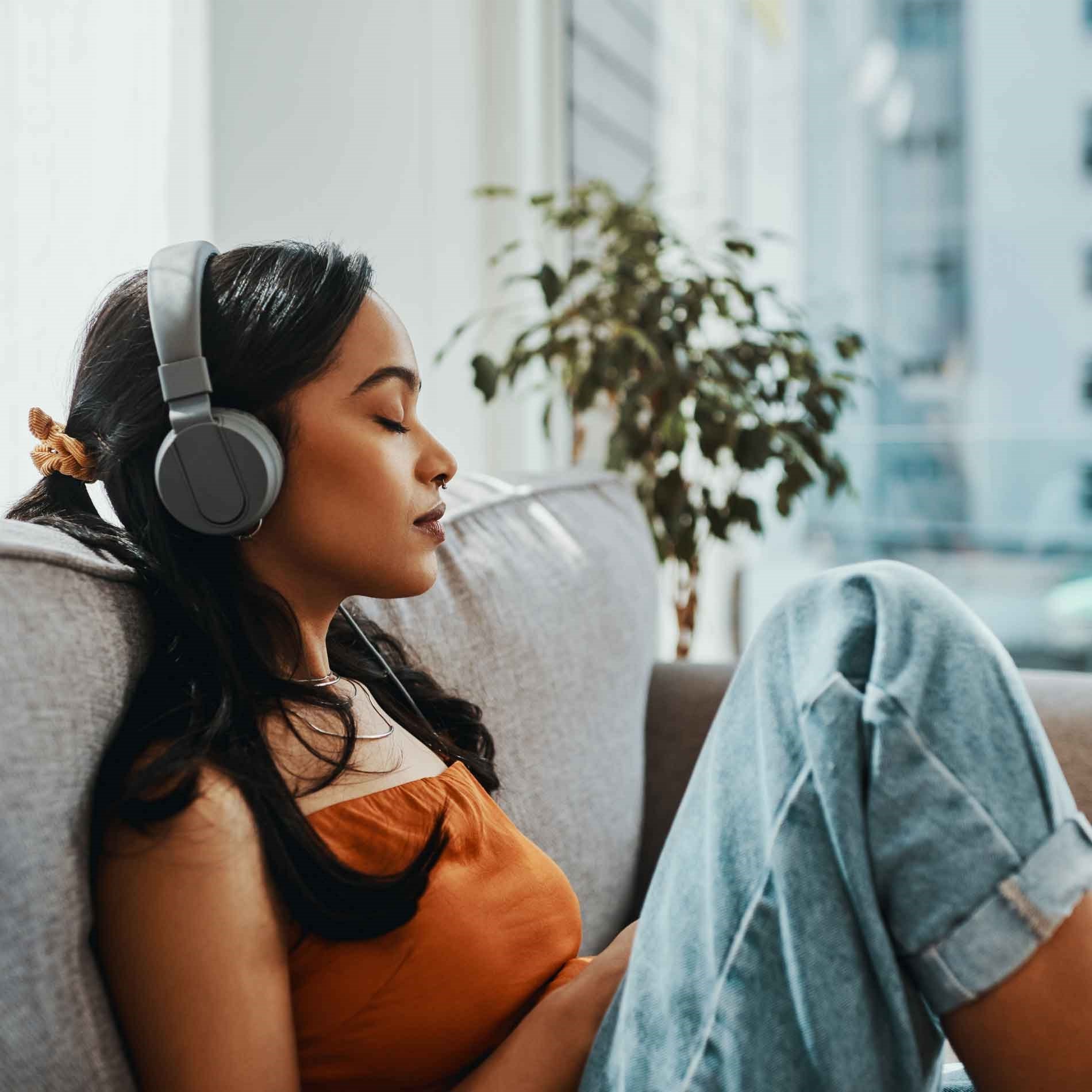- About Us
-
Help
Free 1:1 supplement advice
Not sure which supplement is right for you? Book a free, 15 minute telephone call with one of our nutritional experts.
Book your free consultationGet in touch (Mon to Fri, 9am - 5pm)
Customer Service: +44 (0) 1264 339 770
Order Enquiries: +44 (0) 1264 363 193
Contact us - Stockists
You are on the UK site
Hello US customer, you are currently shopping on the UK site. To ensure you are charged in the correct currency and receive accurate shipping costs, please switch to the US website and re-add your product to your basket.
You're away from FREE UK delivery Free UK delivery (applied at checkout) on orders over £10.00
You have qualified for Free UK delivery
Health News
How to Take Care of your Immune System
Supporting immunity has never felt as important as it does right now. Our immune system can be adversely affected by a number of different factors, including diet, lifestyle, and environment. The good news is that there are plenty of simple things you can do to help keep your immune system functioning effectively. We've put together some easy life-hacks to help you - and your immune system - feel better equipped to face life's challenges.
Over the past few years, we've all had to deal with new and unprecedented challenges. On top of this, for those of us dealing with wintery weather, chilly temperatures can mean more nasty bugs doing the rounds. But don't worry, there are lots of things you can do to support your immune system. Knowing which factors affect immunity can help you to formulate a plan to support your immune defences against bugs and viruses. At times like this we all need a plan!

10 tips to help boost your immune system
- Keep your distance!
- Limit stress
- Improve your diet
- Cut down on alcohol
- Consider giving up smoking
- Get more sleep
- Be more active!
- Stay connected
- Cut off unhealthy relationships
- Try some new supplements
1. Keep your distance!
There is a very good reason for keeping your distance when trying to stay bug-free, firstly because coming into close contact with people who are ill puts your immune system under pressure. Secondly, many viral illnesses are infectious and spread easily from person-to-person via many forms of contact, such as hugging, kissing, or even sitting near each other. So although a loving hug can make us feel better, if the person you are hugging is coughing and sneezing then keeping your distance might be a better idea!
On the other hand, there is some evidence that suggests exposure to different types of pathogens, such as those in soil, can improve our immunity1. Experts have termed this effect the ‘hygiene hypothesis’. There's mixed feelings about this but vaccines actually work in a similar way – they expose our bodies to an inert or weakened form of a virus so our body can build natural immunity towards it.
However, this principle does not apply when encountering those suffering from colds and viruses. Exposure to viruses such as COVID-19 will not guarantee immunity towards it. It is important that you avoid contact with others if you, or they, display symptoms or test positive, even if you have been vaccinated.
2. Limit stress
Stress is cumulative; it can affect immunity and might eventually develop into more serious health issues. Therefore, it’s important to be conscious of the simple day-to-day influences that cause you stress, especially as research indicates that being happy is great for the immune system.
It may be difficult not to feel stressed with all the changes we've been facing, but there are a few things you can try to help.
Relaxing activities such as yoga, reading, or taking a bath can often help to relieve stress. Practising mindfulness and meditation can also help to keep you grounded in the present moment, and ease anxiety about the future. Finding some good things in each day can encourage a positive attitude, too. Research has shown that people who practice positive thinking have a stronger immune response, compared to those who tend to be more negative2.
We do understand, though, that it’s not always that simple. Accept that a little stress is normal, be kind to yourself, and find things that work for you to help calm your worries.
3. Improve your diet
We all have our super-healthy days, and our not-so-healthy days, but if your bad diet days outnumber your good, then this might affect your immune function. Maintaining a good structured healthy diet may be challenging, but if you are someone who finds themselves picking up every bug going around, it is time to take a good look at the food you are putting into your body. A high sugar intake, and consumption of processed and fast foods, can unfortunately weaken the immune system. These types of foods feed bad bacteria in the gut which makes for an unhealthy gut environment. 70% of your immune system is in your gut, and so an imbalance has the potential to affect immune responses resulting in inflammation in the body.
We can still have the odd yummy cake, but it is all about striking a balance. Aim for lots of colour and variety in your vegetable intake – eat a rainbow! Brightly coloured fruits and vegetables contain immune-boosting Vitamin C, E and Beta-Carotene. Make sure you eat enough protein, e.g. meats, fish, nuts, seeds, tofu, and dairy products, as protein is very important for your immune system. All of these nourishing vitamins and minerals will boost and strengthen your immune system3. These are your simple #DietGoals!
4. Cut down on alcohol
Whilst it's great to be able to go out and have a drink with friends again, be mindful that alcohol misuse may result in lowered immunity. It has been found that alcohol triggers complex disruptions to the immune pathways4. These disruptions can impair the body’s ability to defend against infection, contribute to organ damage associated with alcohol consumption, and can actually impede recovery from tissue injury5.
So, I would advise limiting the amount of alcohol you consume. If you feel like having a drink after a long day, consider having a glass of red wine instead of other types of alcohol, as this contains antioxidants known to support health and relax the body6. Keep track of how much alcohol you consume each week – those units can mount up without you realising!
These are useful guidelines to help you monitor your alcohol consumption. It is highly advised that both men and women drink no more than 14 units of alcohol per week on a regular basis. This is achievable by spreading your consumption over a course of 3 or more days if you are someone who tends to drink more than 14 units per week. If you are determined to cut down on your alcohol consumption, try to have several alcohol-free days each week and you are guaranteed to notice a change7!

5. Consider giving up smoking
Alongside the multiple negative effects of smoking, research suggests that smoking also weakens your immune system8. There are harmful elements found in cigarettes which can lead to the formation of free radicals in the body, which can adversely affect immune function. It is believed that smoking may also affect the health of your gut microbiome. If you are a smoker, the best recommendation is to give up smoking, but we recognise that this can be easier said than done. If stopping smoking is too much of a challenge right now, try swapping cigarettes for a less harmful alternative, such as a vapour or e-cigarette. You can gradually work towards giving up smoking this way.
6. Get more sleep
Sleep is vital for wellbeing so you want to make sure you prioritise getting enough sleep. A number of studies have shown that sleep deprivation results in the number of T cells (immune cells) reducing and anti-inflammatory cytokines increasing. This disrupts and weakens our immune response, increasing the likelihood of catching common colds and other infections9.
How can you improve your quality of sleep? Try reducing your caffeine consumption, as caffeine is known to disrupt sleep patterns in some people17. Aim to stop drinking coffee and other caffeinated drinks earlier in the day, perhaps switching instead to herbal tea.
Having a positive pre-bed routine may help to promote a good night’s sleep: stop using your mobile devices a couple of hours before bed; try a relaxing soak in a warm bath, listen to relaxing music, sip on a cup of chamomile tea, or read an absorbing book.Even better, do all of these! It is also good to keep your bedroom tidy and organised, creating a pleasant environment for sleep. Lastly, try sleeping with an eye mask and earplugs, to block out distractions which may disturb your slumber10.
7. Be more active!
If your usual exercise regime has taken a hit recently, it is time to get back into gear - your immune system will thank you. Research suggests that incorporating as little as 20 minutes of daily exercise into your routine has been shown to support positive immune responses11. The good news is that it's much easier than you think to get more exercise. If you like a structured programme or need a little motivation then joining a gym or signing up for exercises classes can give you the nudge you need. If this doesn't appeal then you can easily create your own gym at home! For example, if you need some weights, try canned goods, drinks bottles filled with water (or sand if you need them heavier), or washing detergent. Chairs and stairs make a great at-home alternative for toning exercises like tricep dips and step-ups.
If you have specific goals then structured exercise plans are the way to go, but there are lots of ways to keep your body moving, and daily exercise is much better than the odd intense workout here and there. Housework and gardening can be great exercise, especially when accompanied by your favourite tunes, and at the end of it you also have a nice clean house and tidy garden! Try brisk walking to the shops instead of taking the car - if you have to drive then park further away from your destination. Try to find a form of exercise that you really enjoy, then it won't be a chore and you'll look forward to it. Try a few things to see what you prefer: dancing, climbing, hiking, horse-riding, yoga, pilates, skating - the choices are endless!
If temperatures are plummeting where you live, and you don't fancy exercising outdoors or heading to the gym, then many professionals run online sessions that you can tune into and follow from home. Plus, there are endless workout videos available on YouTube - there's something for everyone, whether you have limited mobility or are training for a marathon.

Here are some of our favourite fitness gurus offering online classes, live or on YouTube:
Joe Wicks (aka The Body Coach) – Whether you're 8 or 80, beginner or fitness freak, Joe Wicks has workout videos for all ages and abilities on his YouTube channel. You'll also find top fitness tips, inspiring stories to keep you motivated, along with meditations for when you need to wind down.
Yoga with Adriene – everyone’s favourite yogi, Adriene has been uploading free yoga practises and full-length classes to YouTube for years. With hundreds of different practises to choose from for all abilities, and no need for any equipment, it couldn’t be easier. We all love her dog Benji too!
Carly Rowena – the most fabulous fitness fanatic, and all-around superwoman, Carly uploads workouts to her Instagram and YouTube that you can easily do from home. Plus, she has lots of other great tips for general health and wellbeing too.
8. Stay connected
Social distancing and self-isolation have been incredibly important and necessary over the last few years, but these measures have left many experiencing loneliness and low mood, or anxious about interacting with others again.
Staying connected is good not only for our mental wellbeing, it's good for our immune health too. Studies have suggested that people who have a healthy connection to friends and/or family have a stronger immune system, compared to those who experience emotions linked with isolation12. The key with connection is to take manageable steps each week to build your social life back up, at a pace that suits you. You could start with a quiet coffee or walk around the shops with a friend or colleague, do some volunteering, or join a group with shared interests.
Thankfully, we’re lucky to live in an age where staying connected is easier than ever. If you're working remotely or can't see your friends or family in-person as much as you would like, then you can still make an effort to keep in touch with them using technology:
Lunch break chats – sync up your lunchtimes and call your friends and colleagues for a catch-up. It’ll be like you never left the office!
Video call ‘meetups’ – if you can’t go out to do fun stuff, bring the fun stuff to you! Try doing exercise classes with friends and family over video calls, or host a virtual dinner party.
Long-distance movie nights – there's a new Google Chrome extension called Netflix Party, which allows you to watch films and TV shows at the same time as others. It even has a chat feature so you can share in your horror at so-and-so kissing what’s-her-face.
Reach out to your community - join one of the various 'kindness challenges' which have sprung up around the world. Loneliness is becoming an epidemic, so it's never been more important for everyone to reach out to each other. One of the most rewarding things you can do for your own wellbeing is to help someone else. This can take many forms, from a phone call or video chat to an elderly neighbour, meeting up for a walk with a neighbour who lives alone, or helping those who can't get out and about by doing shopping, walking dogs, or writing a good old-fashioned letter to brighten their day. If you are one of those who needs support, then don't be afraid to ask for help. Helping others is a gift not a chore for many people, and they'll only be too happy to help out.
There are also various organisations available online which can help you reconnect or meet new people13.
9. Review your relationships
The enforced down-time many of us experienced over the past few years has provided an opportunity to review our lives and relationships. Whether it's a romantic or a friendship relationship, listen to your ‘gut feeling’! Unhealthy or toxic relationships can weaken your immune health. Start by reflecting on the company that you keep in your life. Ask yourself: do they bring the best out of me? Do they add value to my life? Is it one sided or are both parties invested? It is really important to surround yourself with positive, like-minded people who genuinely want the best for you. A study showed that reciprocating positive emotions was associated with people suffering fewer colds and/or infections14.
10. Try some new supplements
We all know about Vitamin C and its immune-boosting abilities, but there are other supplements you might want to consider to help support your immune system.
Vitamins A, B6 and B12 have also been shown to help maintain normal immune health, too, as well as iron.
Our Immune Support contains friendly bacteria, plus Vitamin C to keep your immune system in tip-top shape.
Wishing you the best of health!
If you're a mum, you may like to check out these quick & easy tips from insta mums!
To give your diet an immune-boosting overhaul, check out our delicious breakfast recipes
Or take a look at some of our other articles:
Zanna van Dijk takes 'For daily immunity'!
Dr. Aisling's Seven Top Tips to Feel Less Stressed
References
- Cowling BJ, Ip DK, Fang VJ, et al. Aerosol transmission is an important mode of influenza A virus spread. Nat Commun. 2013;4:1935. doi:10.1038/ncomms2922
- Olszak, T., An, D., Zeissig, S., Vera, M., Richter, J., Franke, A., Glickman, J., Siebert, R., Baron, R., Kasper, D. and Blumberg, R., 2012. Microbial Exposure During Early Life Has Persistent Effects on Natural Killer T Cell Function. Science, 336(6080), pp.489-493.
- Qiu, F., Liang, C., Liu, H., Zeng, Y., Hou, S., Huang, S., Lai, X. and Dai, Z., 2016. Impacts of cigarette smoking on immune responsiveness: Up and down or upside down?. Oncotarget, 8(1), pp.268-284.
- Hemilä, H., 1996. Vitamin C and Common Cold Incidence: A Review of Studies with Subjects Under Heavy Physical Stress. International Journal of Sports Medicine, 17(05), pp.379-383.
- Sarkar, D., Jung, M. K., & Wang, H. J., 2015. Alcohol and the Immune System. Alcohol Research : Current Reviews, 37(2), 153–155.
- Besedovsky, L., Lange, T., & Born, J., 2012. Sleep and immune function. Pflugers Archiv : European journal of physiology, 463(1), 121–137. https://doi.org/10.1007/s00424-011-1044-0
- Micallef, M., Lexis, L. and Lewandowski, P., 2007. Red wine consumption increases antioxidant status and decreases oxidative stress in the circulation of both young and old humans. Nutrition Journal, 6(1).
- NHS, 2015. Loneliness 'may affect the immune system'. [Online]
- Available at: https://www.nhs.uk/news/mental-health/loneliness-may-affect-the-immune-system/ [Accessed 06 09 2018].
- NHS, 2016. Sleep and tiredness. [Online] Available at: https://www.nhs.uk/live-well/sleep-and-tiredness/how-to-get-to-sleep/ [Accessed 06 09 2018].
- NHS, 2018. Alcohol support. [Online] Available at: https://www.nhs.uk/live-well/alcohol-support/calculating-alcohol-units/ [Accessed 05 09 2018].
- Ozdemir, K. K., 2012. The Effect of Nutritional Elements on the Immune System. Journal of Obesity & Weight Loss Therapy, 2(9), pp. 1-6.
- Pickersgill, H., 2013. Lighting Up Immunity. Science Signaling, 6(301).
- Cole, S., Capitanio, J., Chun, K., Arevalo, J., Ma, J. and Cacioppo, J., 2015. Myeloid differentiation architecture of leukocyte transcriptome dynamics in perceived social isolation. Proceedings of the National Academy of Sciences, 112(49), pp.15142-15147.
- Segerstrom, S. C., 2007. Optimism and immunity: Do positive thoughts always lead to positive effects?. HHS Author Manscripts, 19(3), pp. 195-200.
- Cohen, S., Doyle, W., Turner, R., Alper, C. and Skoner, D., 2003. Emotional Style and Susceptibility to the Common Cold. Psychosomatic Medicine, 65(4), pp.652-657.
- Clark I, Landolt HP (2017) Coffee, caffeine, and sleep: A systematic review of epidemiological studies and randomized controlled trials. Sleep Medicine Reviews, 31:70-78.
Popular Articles
View all blogs-
Lifestyle07 Nov 2023
.png?lang=en-GB)



